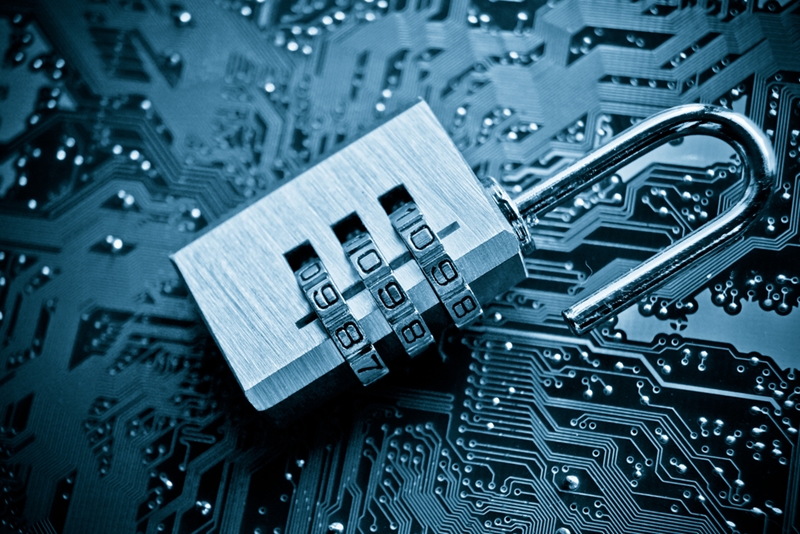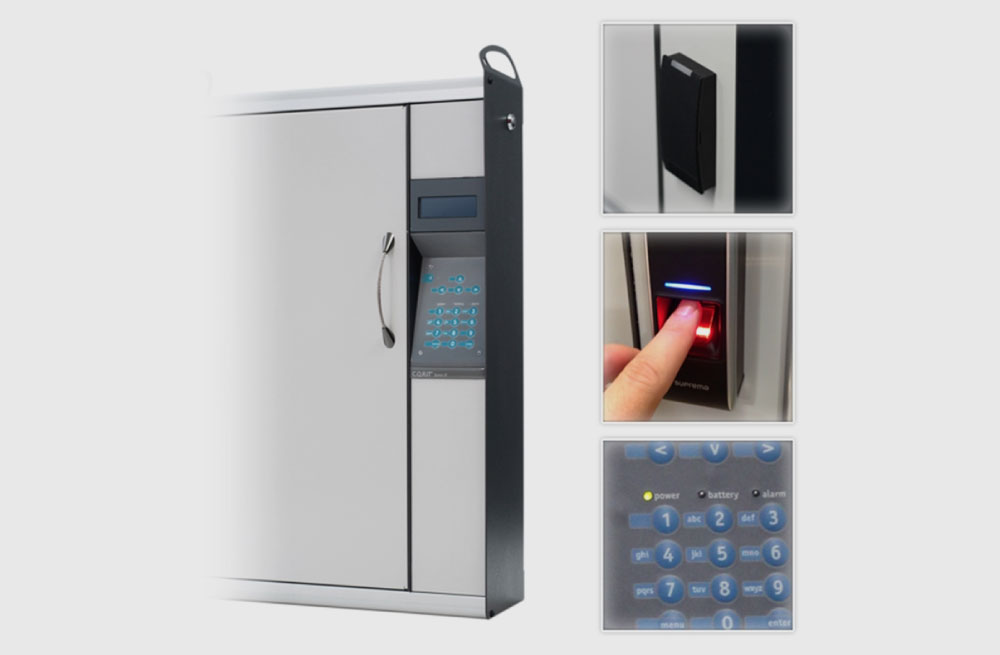
26 Jun 3 physical security objectives you need to understand
Whether it’s stolen assets, a leak of sensitive information or loss of a key, a security breach is incredibly detrimental to the operation of any business. For this reason, it’s vital for organisations to not only implement physical security measures, but understand the objectives behind why they’re needed in the first place.
What is physical security?
Physical security is measures a business or premises put in place to deter theft or a breach in privacy. This isn’t only to accommodate theft from those outside the business, but internal parties such as employees, too. Even if they’re trusted staff members within your company, a leak of sensitive documents to the wrong parties could start a range of conflicts, especially where pay-slips and financials are considered.

What are physical security objectives?
Before choosing the physical security measures best suited for your business, you first need to identify what you want this protection to do. These are known as physical security objectives. Isolating your security goals means you’ll think seriously about the equipment needed for the job and cover all of your bases.
1. Safeguarding physical assets
Where physical security is considered, the first thing that’s generally thought about are tangible assets. Depending on the nature of your physical assets, there are a few avenues of security to explore when selecting the right type for the purpose.
- Cars and machinery – Especially in businesses that rely on a fleet of cars or use of heavy machinery for operation, theft of these items cause great disruption to day-to-day jobs. In these instances, installing security cameras and alarm systems are a great form of security. Not only will an alarm scare away would-be thieves, it’ll also inform your selected security provider of trespassers.
- Buildings and staff – Aside from prohibiting unauthorised access to your building, a security guard can help protect your employees, too. Especially in businesses dealing with pharmaceutical drugs, or carrying large amounts of cash or jewellery on the premises, sometimes the physical presence of an authoritative figure can ward off potential thieves. Should a theft or altercation occur, this professional will know exactly how to handle the situation, acting in the best interests of employee safety.
- Products – Some businesses choose to handle security not as an overall concept, but in making provisions for individual items too. In storage warehouses or places with a large number of items, RFID tags are a helpful security measure that allow managers to track exactly where a product is located. Should a theft occur, these items can be retrieved if safe to do so.
 In today’s digital age, a network hack can halt business operations – especially where personal data is concerned.
In today’s digital age, a network hack can halt business operations – especially where personal data is concerned.2. Protecting private data
Though not traditionally thought of as a physical asset to protect, it’s crucial to make security precautions for your private data, including any cyber filing systems. Things you may consider protecting include:
- Access to your network – Where there’s an internet connection, there’s a means for outside parties to access sometimes critical information. For businesses such as medical centres and pharmacies, a security breach could release sensitive patient details, putting them at risk too. Installing encryption on your wireless access points, such as your Wi-Fi, stops people outside the company from accessing information personal to your business. As part of regulating network access, you may choose to follow-up or track the IP addresses of those logging in, ensuring connections are made from employee or other computers within the company.
- Update passwords – A common reason for security breaches are through password hacks, resulting from simple or easy-to-guess codes. The need for secure passwords goes beyond personal use. In fact, it was recently reported that more than 1,400 public servants in West Australia had “Password123” as their login credentials, while 26 per cent of examined accounts used weak codes. It’s always a good idea to update passwords over time, especially in businesses where there is a high employee turnover – the last thing anyone needs is former staff leaking sensitive data.

3. Regulating access to keys
One of the most important things you can protect in your business is often an afterthought. Ensuring keys are locked away and protected when not in use means they won’t slip into the wrong hands or go missing. Electronic control cabinets are the best option for managing keys, as they offer a range of security features including:
- Real time location tracking of keys.
- Biometric access controlling key release, including facial recognition and fingerprint scanning.
- User identification and PIN code access.
For business managers and operators with a security objective to protect their keys, an electronic control system cannot be overlooked. With real time notifications, you can be sure that keys are released only to authorised parties, with alerts being sent if the key isn’t returned within a pre-determined time-frame.
CIC Technology are at the forefront of smart key control solutions, dedicated to helping their clients achieve their security objectives. For more information on the cabinets available and to experience our products with a free demo, get in touch with our team.
